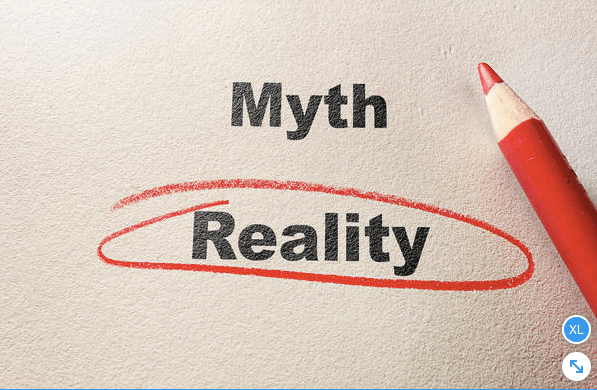Making a careful review of one’s past is the first step in the development of a Life Plan. The next step is to assess your current reality. The final step is to create a vision and strategy to achieve your dreams, which will be published in the next few weeks.
Part Two: Assess Your Reality
We are born with joy and curiosity. Everything is new. Every encounter fresh. In this regard we are a lot like Adam and Eve. Their home was without flaw. As children, we see the world as blameless and pure? How then do we lose our way? I believe we are made in the image of God but somehow few ever realize their potential. Jesus said, “I tell you the truth, anyone who doesn’t receive the Kingdom of God like a child will never enter it.” We want to blame Adam and Eve for tasting the fruit that led to the knowledge of good and evil but somewhere along the way we take a bite of the same fruit. Once eaten there is no turning back. Instead of seeking the purity of our youth we seek the pleasure found in a different fruit. The fruit is delicious but not satisfying. Is it possible to return? How do we do it?
Any traveler needs to know their current location before mapping their destination. This is true when traveling as it is true in life. This is why it is important to critically anyalyze our past and our current state.
Our first ask is to take a hard look at our character. This will only work if you are commited to change; if you have the motivation, and are willing to take a hard look at yourself. Perfection is not required but a desire to become your ideal self is. Wise people are ready to take this step.
Do the Inner Work
A wise person is one who desires truth, and is willing to face reality and do something about it. The action required is to develop a life plan whether you are used to calling your plan by this name or not.This is not to say to be perfect. Perfection in the Greek refers to the process of becoming better today than yesterday, not being without flaw. There is a limit to our growth as long as we have any of the following Imperfections.
Seven Imperfections
1. Pride – to condemn others and become impatient with their faults. To compare themselves to others
2. Avarice – they are never happy with the status quo. While this is good for a leader this fault can negatively affect one’s interior life
3. Fame – their motivation is for fame not service
4. Wrath – impatience, always on edge, lack sweetness
5. Gluttony – resist hard work of becoming who God called them to be
6. Envy – unhappy when others do well
7. Sloth – running from that which is hard. The aim is sweetness and feeling good. 1
Now I must admit I have experienced each one of these but it is much easier to see them in other people. A wise person learns from other people’s mistakes so s/he doesn’t have to make those mistakes. A complete life plan must address our infirmities.
There are times when we need the help of a professional to help us sort through life. Counseling or mentoring is a good choice for some. Coaching may be the best choice for others. I have been the recipient of all three, and each offers a benefit unto itself.
Let Your Life Speak
Inner work works! Those experienced with coaching can attest to this. Parker Palmer’s, Let Your Life Speak, speaks to me in a fresh way every time I read it. There is much I could say about this little book; however, my biggest takeaway can be found in the title, Let Your Life Speak. Palmer’s journey was to find his “ideal self.” Palmer was a Thomas Merton disciple, and Merton’s writing caused me to fall in love with Christianity.
The journey begins when Palmer’s family and friends told him what he should do with his life. This is a little misleading because those words were never really proclaimed. Many a lawyer, enginneer, code writer, government contractor, entrepreneur and professionals of all sort share this same story.
Now they are realizing fulfillment is fleeting. Status quo is no longer acceptable. This is a significant transition in life – midlife! But it doesn’t have to be a crisis.
The journey to understand our ideal self is afoot.
Who Are You Really?
Reality Testing is one of 15 elements of Emotional Intelligence. Those high in understanding reality are objective. They are principle centered. They know the facts and accept them. They also know intuition is important and use it if they have good instincts. These people usually have a high level of self awareness.
So how do you develop your self awareness?
Short answer: begin with assessments.
- Myers/Briggs Temperament Indicator (MBTI) is a great first start. In fact you can get a free MBTI HERE. There are a variety of other assessments that idetify preferences such as DISC, Insights and others.
- Another good assessment is StrengthsFinder.
- Probably the best way to truly understand how others see you is 360 Feedback. In my coaching practice I use Emotional Intelligence testing for both individual insight and 360 feedback. Improving self awareness is a journey.
Core Values
One reason our resolutions fail is we continue to live inconsistently with our core values. Are you living consistently with your core values? Do you believe your usefulness determines your success? How are the answers to these two questions in harmony with one another?
Identify Your Core Values
Inc published this and is a good beginning point in developing your list of values. Additionally, you can simply start a series of top 10 lists.
Try these:
1. What 5-10 things from my family do I most admire? Make me angry?
2. What 5-10 things do I most admire from the people I love the most?
3. What are the top 5-10 `good things occurred in my past? Bad things?
4. What 5-10 things do you learn from your free personality assessment?
5. What 5-10 things make you angry? Frustrate you?
On the angry list identify the opposite of the meaning. This would be something you value. For example, it offends me when people believe the worst in others. As a result, one of my core values is compassion. This is also somewhat aspirational. My other core values are adventure, restoration and curiosity. As Mahatma Ghandi said,
Your beliefs become your thoughts. Your thoughts become your words. Your words become your actions. Your actions become your habits. Your habits become your values. Your values become your destiny.
What Is Most Important In Your Life?
Yes, I think this is the right question. Past the need for food and shelter, the two most important needs for all of us is the desire for community and the pursuit of meaning. So the answer to the question for me is people and meaning.
W. Edwards Deming was an organizational genius. Reading Deming is where I first put some of these pieces together. This is where I learned that all of humanity has a need for community, a need to contribute and a need for meaning in life.
Our core values determine what is most important in our life and drive our actions whether we realize it or not. Core values describe the why of our actions in life. You are most alive when you are living out your core. Place me in a coaching session when someone is experiencing real break through and I come to life.
As a Christian I find the answer to the “most important in life” question in the bible. The short answer for me is the Gospel (the Truth of a triune God) and Community (living interdependently with other people) and by living (or attempting to live) the way God created me to live: not in its original state but in its restored state, by knowing my core essence and doing my best to live that way.
Where do you find meaning?
Unfortunately, many think their work is where they will find meaning. Been there, done that, got the t-shirt. Some say the most important in life is family. What happens when you live as if your work is the most important thing in li
fe, but say your family is most important? Short answer: cognitive dissonance. In other words, you are living inconsistently.
How do you break this habit?
All humans have emotional needs. When these needs aren’t met we drift. Begin by understanding the things that cause you to drift from your mission. Of course, this assumes you have clarity on your mission. And further, how you plan to fulfill this mission.
The U.S. Army uses a, “Be, Know, Do” model for leader development. Being is about character development. Knowing is about intellectual development. Doing is about behavior. All this is good stuff, however, like every model, this one is lacking. In the Army, as well as just about any organization that recognizes reason and logic as most important, one’s emotional state is often overlooked. I think this is because many have been taught that feelings are fleeting and we simply can’t trust them. This process suppresses feelings. When we don’t pay attention to our feelings we aren’t in touch with them. Being out of touch with our feelings causes us to take action to cover or mask them. We do this naturally and many times with no awareness.
Develop Your Self Awareness
Self-awareness is more than our view of self. It is an awareness of our thoughts, feelings and actions. And, perhaps more importantly, how thoughts , feelings and actions effect self and others.
As a composite, self-awareness includes; self-regard, self-perception, emotional self-perception and how we impact others by our actions and feelings. When thinking of self-awareness many will err on the side of an inflated or deflated view of self. Self-perception is being honest about our skills, talents, strengths and weaknesses. As we interact with others they form an opinion of us.
We gain self-awareness through objective feedback and honest evaluations of how we impact others. Mentors, supervisors and coaches provide objectivity. As mentioned, there are a variety of tools that lead us to understand self. Most assessments reveal facts. But knowledge can be quite different than wisdom, which is the very thing that would seem to define self-awareness. C.S. Lewis said,
True humility is not thinking less of yourself; it is thinking of yourself less.
Personality testing and strengths testing are very productive tools in understanding or confirming one’s self-awareness. However, this is only the beginning. For example, if someone identifies as an introvert there are times when they must interact with others. In fact their success may demand it. As a coach I would not expect a client to be something they are not. In this example, more of an extrovert. I would explore how this client might develop some part of their emotional intelligence as a solution. Assertiveness and flexibility are two of 15 elements in emotional intelligence would be explored for benefit.
Self awareness is developed through practices in focusing your attention on the details of your personality and behavior. It isn’t learned from reading a book. When you read a book you are focusing your attention on the conceptual ideas in the book. You can develop an intellectual understanding of the ideas of self awareness from a book, but this is not the same. With your attention in a book you are practicing not paying attention to your own behavior, emotions and personality… more
Those competent in self-awareness understand and generally feel good about themselves. However, the process of gaining self-awareness can be very painful. Those experienced in 360 feedback know how shocking the data can be. Their goal isn’t freedom to act as they will but rather to act in a way that is most effective. The self-aware understand how their feelings and actions impact those around them. As important as these two areas they know their goals and are busy working an improvement plan. 2
What Defines You?
Early in our careers, we are focused on earning a place in society; to develop our profession, family and friendships. At mid-life (approximately 35 years old), we all start asking if this is all there is to life: go to college, get a job, get married, have children all the while living with a feeling of emptiness. Mid-life transitions are all very similar. We get a feeling and start thinking that something isn’t quite right. We begin to struggle on this journey by remembering things we did as a child and wonder why we stopped that activity. Something is missing in life!
When I was in my mid-life event, I started gardening because I am typically not a sensory person. This makes more sense to those who understand Myers/Briggs personality testing. I make the most of my decisions based on intuition. Once we take this inward journey, we live there for a while and do crazy things out of need to fill this emptiness.
In The Hungry Spirit: Beyond Capitalism, A Quest for Purpose in the Modern World, Charles Handy describes the difficulty of connecting with his ideal self:
I spent the early part of my life trying hard to be someone else. At school I wanted to be a great athlete, at University an admired socialite, afterwards a businessman and, later, the head of the great institution. It did not take me long to discover that I was not destined to be successful in any of these guises, but that did not prevent me from trying, and being perpetually disappointed with myself. The problem was that in trying to be someone else, I neglected to concentrate on the person I could be. That idea was too frightening to contemplate at the time. I was happier going along with the conventions of the time, measuring success in terms of money and position, climbing ladders which others placed in my way, collecting things and contacts rather than giving expression to my own beliefs and personality.
Handy later listened to a different voice and connected with his, “ideal self.”3
I once worked concurrently with three federal governement contracted engineers around the age of 35 who were asking these questions. I helped each of them develop a plan that included transitioning out of their current role to the work that included contributing in a greater way to society.
While on this journey, a skilled coach can help you recognize what you are sensing, ask the right questions and help you emerge as a new and different person with an awareness of next steps to take on your journey.
Baby Boomers
The second (only to Millennials) largest generation of people in America are asking how they retire but still contribute. These Baby Boomers have been retiring the last decade or so. But retirement for this group is quite different from their parents. Boomers are much healthier and want to contribute even in their old age. Significance becomes more important than success. We ask the what’s next questions. Unmet dreams of our past can be renewed. After climbing the ladder of success, we wake up and realize we’re on the wrong ladder. These are a few of the reasons I became a professional coach.
Summary
Assessing one’s reality is the second step in the development of a Life Plan. Once we can accurately describe our current reality and our past, and why our past drives our current behavior, we are able to define our future. We begin with values and move to vocation. Vocation isn’t our job but rather the set of behviors that we apply daily to be successful, which I call your Winning Formula. Lastly we begin the process of visioning your future. This is discussed in the next part.
- Emotionally Healthy Spirituality, Peter Scazzero
- The EQ Edge, Third Edition, Steven J. Stein and Howard E. Book
- Coleman, Boyatwzis, McKee, Primal Leadership, 117







